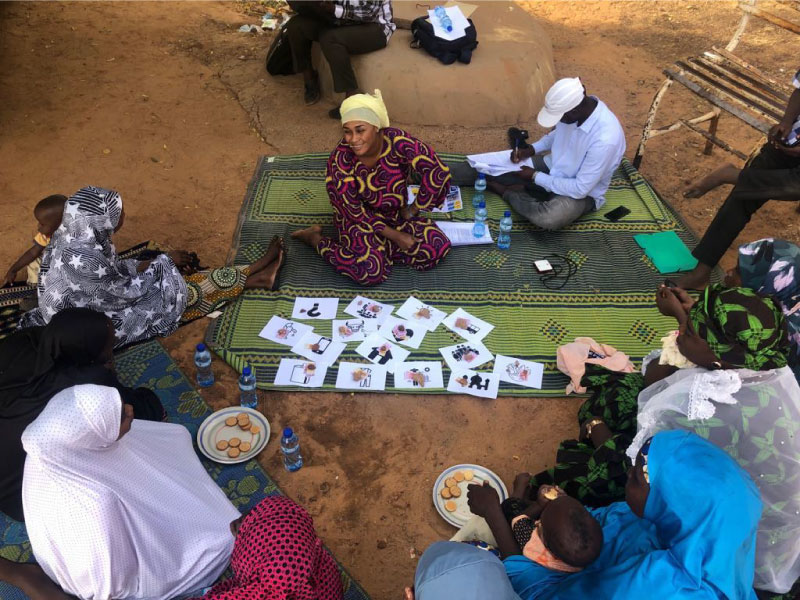At lunch today, I had a chat with a smart UX researcher who was wondering what I spend most of my time on. My answer was straightforward: at least 50% of my week goes by doing research and design work for clients! Let’s be honest, it varies from one month to another, but overall, why is the co-founder of a +30 people UX design company in Africa spending so much time on research instead of finance, legal, HR or even business development. The response is pretty simple:
- I like it a lot
- It’s more than useful
- They are not enough UX researchers in Africa yet
Let me walk you through the “Whys” of these 3 elements. I believe it can help entrepreneurs and decision makers better understand the incomparable value of user experience research in Africa.
1. Why do we like doing UX research so much (and why you need it to grow as a manager)?
Because it’s at the heart of human nature to interact with others. We are social animals - well, maybe not the back-end developers you’re right - but overall we are designed to get to know each other and build stuff together that makes our society more secure and prosperous.
In the business world however, we tend to fight that natural tendency, we focus on ourselves, we focus on competing and we focus on acquiring rather than building. That is why I believe it is important for us as managers, to go back as often as possible to our original self and spend time again listening to the people who will be impacted by our technologies. So what is actually user experience research helping us achieve?
- it helps us reconnect with a fast changing world
- it helps us reset the biases that we create from experience
- it helps us learn about meaningful details, about emotions, about stories of individuals, and not only see the world through a macro-lense, some big data or your “only-people-I-like” social media feed
In a nutshell, the qualitative approach of UX research or human centered design will resonate with your gut feeling, your business intuition and your natural creativity. Those are central elements of an entrepreneur or a leader’s DNA, but we tend to hide them behind rational approaches and numbers and that’s a mistake.
Don’t believe me, just try it! Spend 1 or 2 days doing in-depth, non-directive or semi-directive interviews with your customers. I bet you’ll be amazed by the number of ideas that you just got by letting your brain wander into someone else’s life, pain-points and needs.
2. Why is UX research more important in Africa than anywhere else?

Yeah I know that sounds like the guy who runs a consulting firm and wants to sell you something expensive loool but let me tell you why I sincerely believe so:
- There is no data on our continent! I’m serious, it is really hard to find materials to go deeper than some really good but continent-wide reports on the mobile industry or the very objective reports on ecommerce by … ecommerce companies or this amazing study by your national statistics agency… from 1965. I’m not blaming anyone, just realizing that our continent is growing much faster than we all have the time to create knowledge about it. So if there is no data on your cocoa farmers in Western Ghana, your insurance agent in Lagos Nigeria or your teenager in Mali, what choice do you have other than getting the information yourself?
- Everything that you guess is probably wrong. Nice try though, but think about it: if you’re a designer, entrepreneur or product manager reading this article you’re probably very different from the 35% of African who are not literate. If you’re reading this on our website (I believe we stopped mailing paper newsletters recently...) you’re part of the 20ish % who have access to the internet. And if you're above 18 years of age, you’re already disconnected from half of the population. You get my point: whatever their background or experience, innovators are far away from the majority of people who could benefit from innovations - and doing regular user research (quantitative + qualitative by the way) is the only way to keep track of our fast changing environment.
- Behaviours in Africa are very peculiar from one place to another. CEO Mohamed at an international conference in the US or Europe: “you know, Africa is 54 countries and thousands of languages and cultures bla bla bla”. CEO Mohamed 2 days after at his product strategy meeting: “You know, let’s do exactly the same feature for Nigeria and Ghana and let’s focus on our english iOS app first, I need to show it to our investors in Palo Alto”. I know what you're gonna say: Facebook and Whatsapp are uniformizing the way people use apps all over the world. True to some extent, they know what the picture icon is, woohoo! But has your microfinance field agent in Lagos ever used facebook to keep track of his portfolio, his commissions or his bargained transaction history?
And I could keep on going, these are just 3 major reasons why around half of YUX full-time staff today is focused on UX research. But…
3. I could have dinner with all African UX researchers in my 20 sqm living room!
OK, maybe that’s an exaggeration (not on my apartment size though) but I would bet that there are no more than 50 of us across a continent of 1.2 billion people. I’m not talking about UI designers, for whom we’ve seen a lot of training boot camps and schools opening in the last 2-3 years in Kenya, Ghana, Nigeria or Senegal. But formal UX research or human centered design capacity building in Africa? I know that the Nairobi Design School has been doing amazing stuff in Kenya, and we trained +100 people in our UX Research classes at the YUX Design Academy or partnering with the Africa Design School in Cotonou or MEST in Accra, but that’s definitely not enough for a continent that needs to build entire digital ecosystems for its populations and companies.
That’s actually why we don’t care about the numbers of people trained; the most important is the quality of their soft and hard skills in design research but also the values that they will share doing research or design work with communities all over Africa. We not only need good researchers and designers, we need to create the first generation of a continent, the generation that will inspire thousands of others in 10 or 20 years from now.

-----
In conclusion, these are the reasons why, almost 5 years after co-founding YUX and sharing a 3-months long UX research on digital habits of street vendors in Dakar, you will still see Daniel, Camille and Yann, running in-depth interviews, co-creating relevant icons, and analysing why tea farmers in Rwanda want to weigh the produce on a scale with a double-sided screen.
Sorry, gotta go… a call with our accountants on tax withholding 🤨



